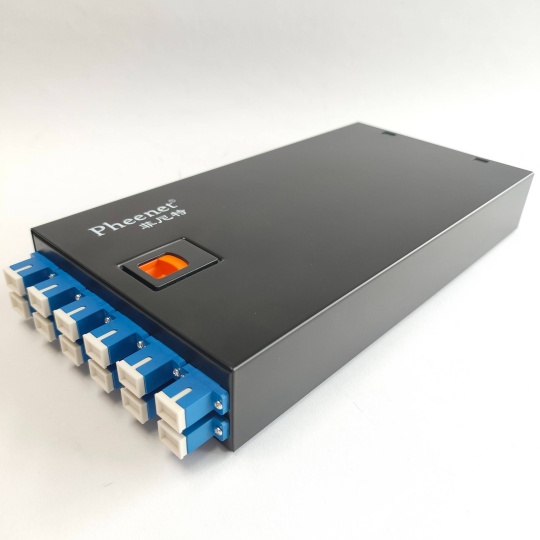Industrial Cable Assemblies for SERCOS: Ensuring Reliable Real-Time I...
In industrial automation, the SERCOS (Serial Real-Time Communication System) protocol stands out as a cornerstone for high-speed, deterministic data exchange between controllers, drives, and sensors. However, the performance of SERCOS networks hinges entirely on the quality of industrial cable assemblies designed for this specific protocol. Subpar or mismatched cable assemblies can lead to signal degradation, latency, or even network failure—costly issues in time-sensitive applications like CNC machining or robotic assembly lines. This article breaks down the critical technical requirements, selection criteria, and real-world value of SERCOS-optimized industrial cable assemblies.
Key Technical Requirements for SERCOS-Compliant Cable Assemblies
SERCOS operates on strict real-time communication principles, so its cable assemblies must meet specialized specifications to maintain signal integrity and withstand harsh industrial environments.
- Impedance MatchingSERCOS networks (especially SERCOS III, the Ethernet-based iteration) require precise characteristic impedance—typically 100Ω ± 20%—to prevent signal reflection. Cable assemblies must use twisted-pair conductors (often 24 AWG or 22 AWG) with consistent twisting ratios, as inconsistent impedance causes data packet loss and delays.
- EMI/RFI ShieldingIndustrial floors are filled with electromagnetic interference (EMI) from motors, welders, and other heavy equipment. SERCOS cable assemblies need robust shielding, such as foil + braid combinations (e.g., aluminum foil with tinned copper braid), to block external interference and prevent the cable itself from emitting noise that disrupts nearby systems.
- Environmental DurabilityUnlike commercial cables, SERCOS assemblies must endure extreme conditions:
- Temperature ranges: Typically -40°C to +80°C (for standard models) or up to +125°C for high-temperature applications.
- Mechanical resistance: Resistance to oil, chemicals, abrasion, and torsion (critical for robotic arms or moving components like conveyor belts).
- Ingress protection: IP65 or IP67 ratings for cables exposed to dust, moisture, or coolant.
Critical Selection Criteria for End-Users
When choosing industrial cable assemblies for SERCOS, focusing on these factors ensures alignment with your application’s needs and avoids costly rework:
- Match the SERCOS Protocol VersionSERCOS has evolved from SERCOS I/II (fiber-optic or RS-485 based) to SERCOS III (Ethernet-based). Ensure the cable assembly is rated for your protocol:
- SERCOS I/II: May require fiber-optic cables (for long distances) or shielded twisted-pair (STP) cables.
- SERCOS III: Requires Cat5e/Cat6a STP cables (to support Gigabit Ethernet speeds and impedance requirements).
- Prioritize Application-Specific Design
- Fixed installations (e.g., control cabinets): Choose rigid, flame-retardant cables (UL 1015 or IEC 60228).
- Dynamic applications (e.g., robotic joints, linear slides): Opt for high-flex cables (tested for 10+ million bending cycles) to avoid conductor breakage.
- Verify Compliance and CertificationsLook for certifications like:
- CE (for European markets) or UL (for North America) to ensure safety and regulatory compliance.
- SERCOS International’s compliance mark (where available) to confirm the cable meets protocol-specific standards.
Typical Application Scenarios
Industrial cable assemblies for SERCOS are indispensable in applications where real-time synchronization is non-negotiable:
- CNC Machine Tools: Enable precise coordination between the controller, spindle drive, and axis motors, ensuring accurate cuts and minimal tool wear.
- Industrial Robotics: Connect robot controllers to servo drives, supporting smooth, repeatable movements (e.g., in automotive welding or electronics assembly).
- Automated Production Lines: Sync conveyors, sensors, and packaging machines to maintain consistent throughput, reducing bottlenecks.
- Renewable Energy Systems: Link inverters, controllers, and sensors in wind turbines or solar farms, where real-time data helps optimize energy output.
Choose FRS: Your Trusted Partner for SERCOS Cable Assemblies
After understanding the technical rigor and application demands of industrial cable assemblies for SERCOS, partnering with a manufacturer that prioritizes precision and durability is key—and FRS delivers on both. As a dedicated industrial cable assembly factory, FRS designs SERCOS-compliant solutions tailored to your needs:
- Protocol Alignment: Our assemblies are optimized for SERCOS I/II/III, with strict impedance control and EMI shielding to ensure 100% data integrity.
- Customization: We build cables for dynamic (high-flex) or fixed applications, with options for length, connectors (e.g., M12, RJ45), and environmental ratings (IP67, high-temperature).
- Quality Assurance: Every FRS cable undergoes rigorous testing—including impedance checks, EMI shielding validation, and mechanical stress tests—to meet CE, UL, and SERCOS standards.
For reliable, long-lasting SERCOS communication that keeps your automation systems running seamlessly, FRS is your one-stop factory partner.











